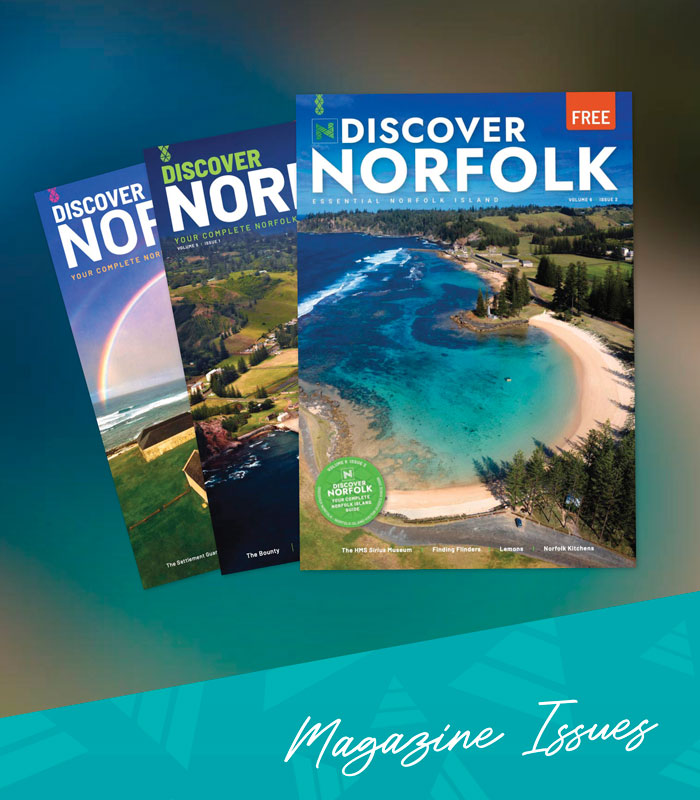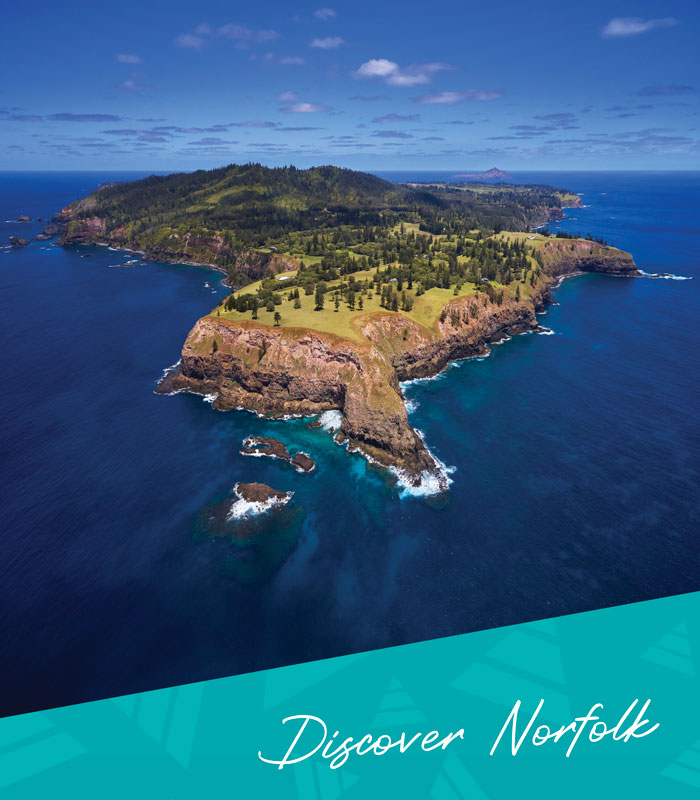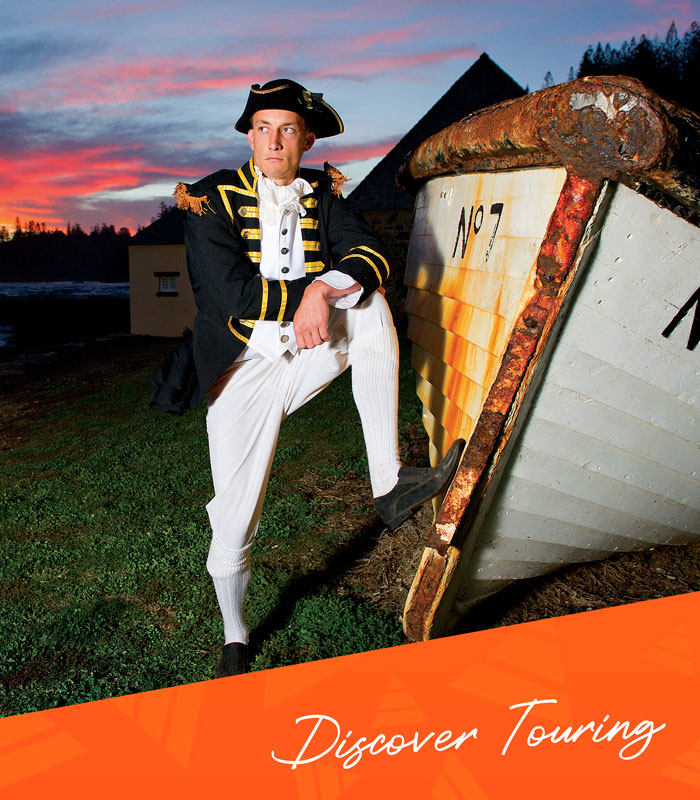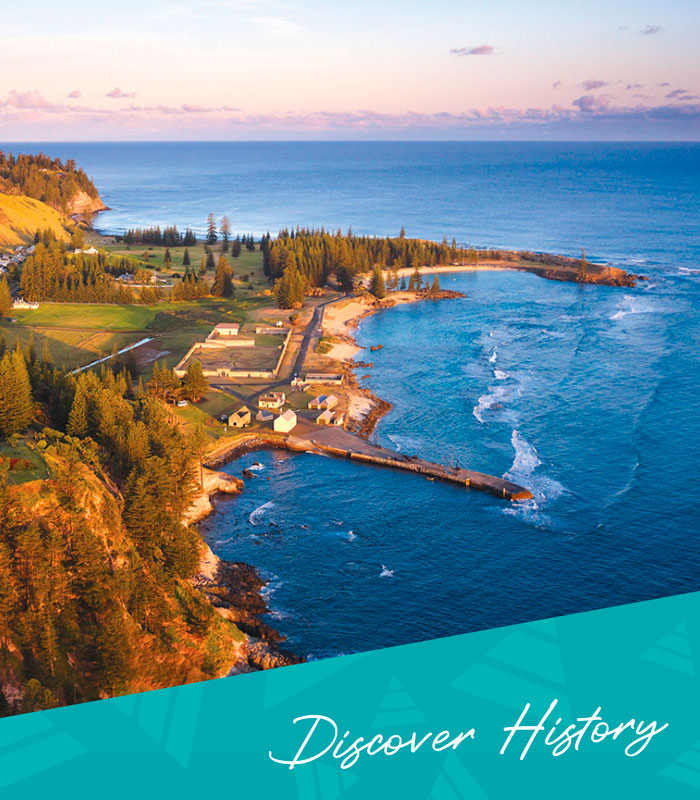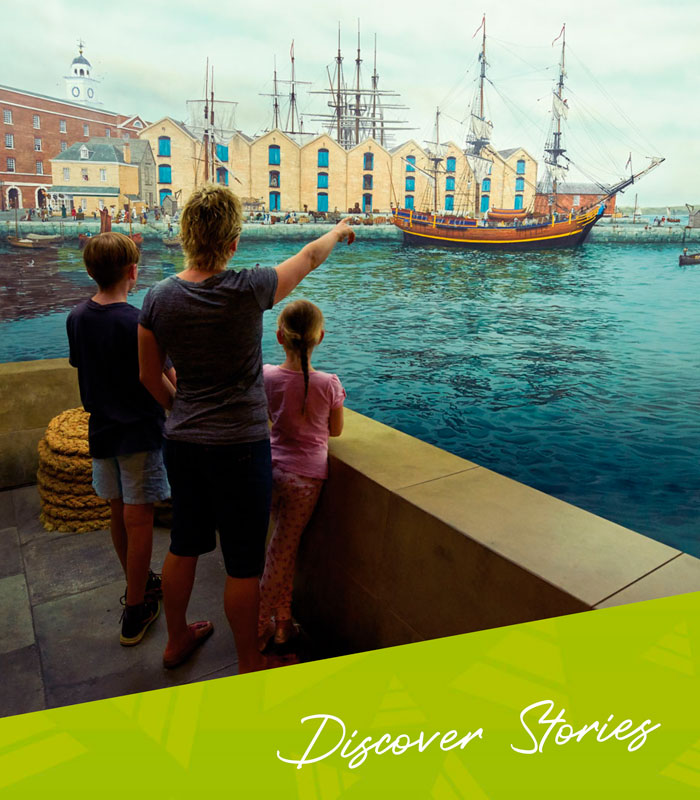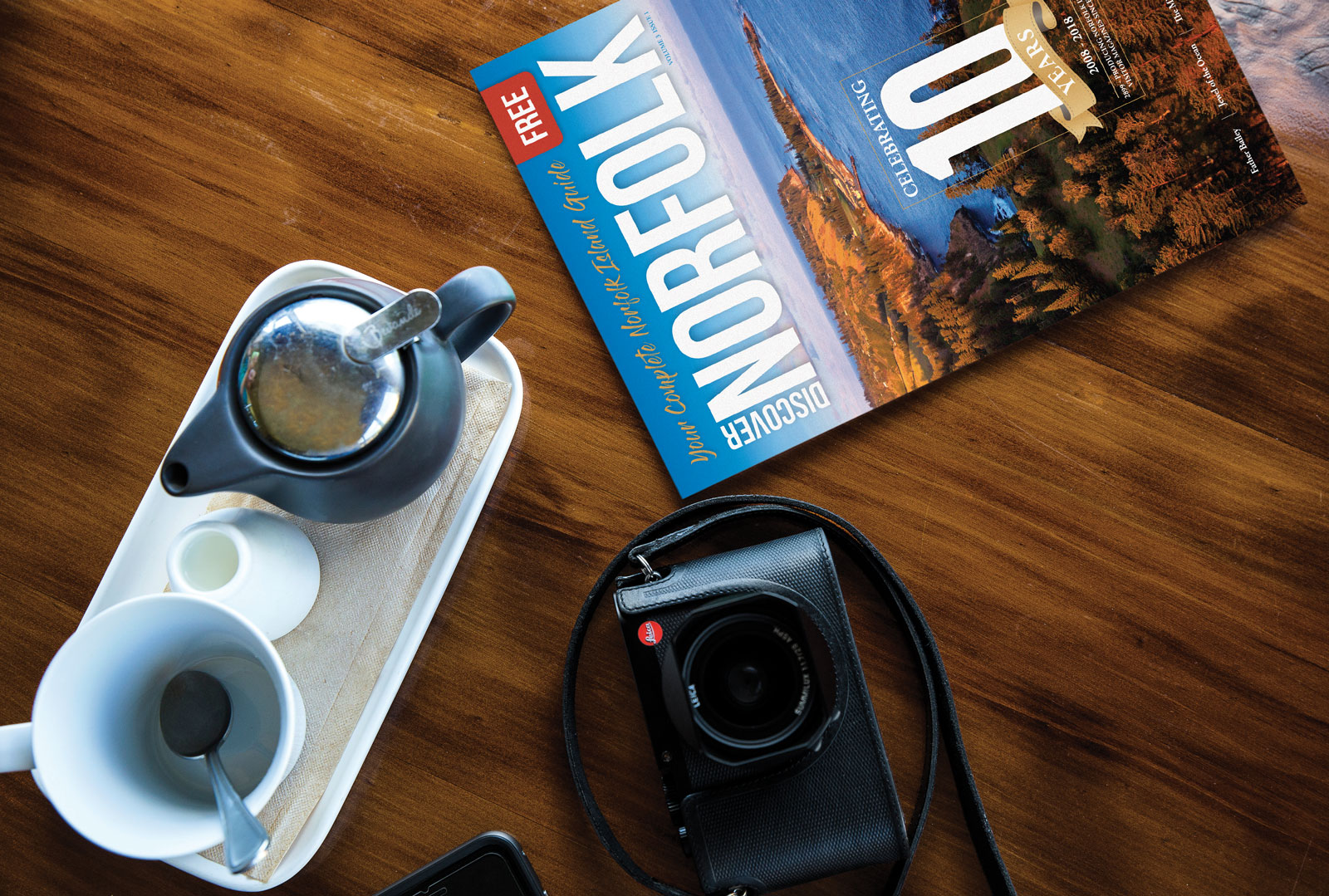Home » All Articles » Bligh vs Christian … Who Was to Blame
Bligh vs Christian … Who Was to Blame

The mutiny on the Bounty is one of the most infamous naval mutinies that ever took place. It is also a story with an enigma at its heart: just who was to blame, Captain William Bligh or Fletcher Christian? Perhaps this is not even a topic to be discussed on Norfolk Island, awash as it is with Christian descendants! However it is worth looking past the Hollywood stereotypes, to gain a deeper appreciation of the moral issues behind the drama and the battle between these two opposing personalities.
One of the most enduring aspects of the story has been that the cruelty of Captain Bligh, particularly towards Fletcher Christian was the reason the mutiny occurred. On this version, Bligh was an overbearing tyrant who ‘brought it on himself’ and likewise, Christian was an innocent, overly sensitive yet popular leader. In all of the five ‘Bounty’ movies (made between 1917 and 1984), considerable variations from actual historical events occur. In every version Bligh is portrayed as cruel, or at least ruthless and also quite old – he was in fact only 33 when the voyage took place and Christian 25. One version includes Bligh having a sailor keel hauled. Not only did that not happen but the practice had been banned for about sixty years. Four versions show crew being flogged for calling their Captain a thief and another has sailors unjustly put in leg irons which incites Christian to mutiny. None of those events ever happened.
What did occur was a voyage undertaken with little backing or interest from the British Navy who had been ordered to undertake it by King George III. The King had been successfully petitioned by Sir Joseph Banks, a wealthy and influential scientist and one of his advisors. The reason for Banks’ petition was that he had friends among the plantation owners in the West Indies who were looking for a cheap, reliable source of food for their slaves. He realized that the breadfruit plant he had seen in Tahiti while on Captain Cook’s 2nd voyage had many bread-like qualities and would be an ideal solution. The voyage’s mission therefore, was to collect some plants from Tahiti and take them to the West Indies. Banks organised for an Officer for whom he was Patron to lead the voyage. That man was William Bligh.
With a European war looming the Admiralty’s dis-interest and lack of enthusiasm was evidenced in poor preparations, allocating a small ship and providing no marines or escort ship for security. Bligh, although referred to as Captain, was appointed to the lesser status of Lieutenant instead of Master and Commander and paid a much reduced salary from £500 to £50.
Bligh however was enthusiastic about the voyage, not only for its breadfruit mission but also the scientific work that he could undertake and in discovering more about French naval activity in the area. His career at sea had had a remarkable upward trajectory being just 22 when appointed to Captain Cook’s 3rd voyage as Sailing Master where he became perhaps one of Cook’s most brilliant pupils. The marriage of wealth, science, art and ambition that Banks’ career personified, was a formula that Bligh respected and aspired to and this Bounty voyage provided a path for that to unfold. It is not often remembered that Bligh wanted to use this voyage to implement his own humanitarian ideals that centered on hygienic and moral experiments. In fact, he wanted to out-do Cook on every count but especially as a humane Captain.
To this end he put the Bounty on three watches instead of two so the men had eight hours off and four hours on watch – or one uninterrupted night in three. This was far superior to the usual practice where seamen never had more than four hours sleep at a stretch. In even the worst weather off Cape Horn he kept the galley stove alight and a man attending it to dry clothes so that no-one went on watch or to bed with wet clothes; and berthing some of the men in his own cabin to relieve the damp and cramped conditions. He gave the crew hot breakfasts which in those days were unknown of at sea or indeed on land, and insisted on the most rigorous cleanliness of the men, their clothes and the ship.
The fact is that Bligh used the lash the least of any naval commander in the Pacific. In the eighteen months prior to the mutiny he had ordered that only five of his crew be flogged. Only one punishment is noted on the outward voyage which is two dozen lashes to Matthew Quintal. When it was administered, Bligh recorded in his log, “Until this afternoon I had hoped I could have performed this voyage without punishment to anyone.”
The ship purchased for the voyage was the 215 tonne Bethia, re-fitted and then re-named the Bounty. She was small at only 26.5 metres long and 7.4 metres wide. The space allocated for more than one thousand breadfruit pots was the Captain’s cabin, resulting in Bligh being given a much smaller Officer’s quarters. The Bounty was overcrowded and undermanned, carrying just 46 men. Due to the requirement of officers at various levels, only 13 men were involved in the working of the ship and one of these was almost blind.
The crew were free men who had chosen adventure. They were the first all-volunteer crew to sail a naval vessel. During the first month when bad weather caused multiple failed attempts to leave the Spit Head 16 deserted and had to be replaced. It was by reasonable standards a mediocre crew. Matthew Quintal and William McCoy are both described by Robert Nicholson in his book ‘The Pitcairners’ as “unsavoury characters” and were the last two to actually join the ship before she sailed, arriving drunk. The doctor, Thomas Huggan, was an alcoholic and ended up dying of alcoholism in Tahiti prior to the mutiny occurring. Bligh was the only commissioned officer resulting in no effective chain of command. Essentially, the Bounty was to sail into the vast emptiness of the southern oceans where little or nothing was known and she went alone.
The Admiralty was so late signing off Bligh’s sailing orders that the delay resulted in arrival at Cape Horn in the stormy season where they encountered severe conditions before eventually turning-around to sail the long way round the world to Tahiti. This late arrival meant that after collecting the breadfruit seedlings they had to wait over five months for the right sailing season before beginning the return journey. The enforced stay in Tahiti was where everything began to go wrong for Bligh.
There is no question that Bligh was a man with a fierce temper and an acid tongue. We have many examples of this from across his career and we also know that he suffered some sort of nervous complaint. Bligh’s half nephew Francis Godolphin Bond served as First Lieutenant on Bligh’s second breadfruit expedition on the Providence, and in a letter written to his brother Thomas in 1792 he says: “…. Yes, Tom, our relation had the credit of being a tyrant in his last expedition… the chief part of his conduct must have arisen from the fury of an ungovernable temper”.
It was back in 1786 when commanding the Britannia that Bligh brought on a young 22 year old able-bodied seaman by the name of Fletcher Christian. Bligh became a Patron to Fletcher whose family connections also extended to his own family. They sailed well together, so that when he began to fit-out and man the Bounty, Fletcher was one of the first people he recruited.
Fletcher was born in 1764 to Manx gentry on the Isle of Man. He was a good scholar staying at school far longer than most young men who joined the Navy, however that was because he wasn’t expecting to enter the Navy. He was expecting to go to Cambridge to study Law and take his place as an administrator or lawyer as had been the family tradition for the previous three centuries. There are few families that can claim an unbroken father-to-son line like this and it would have been impossible for Fletcher to not be influenced by this heritage and expectation. However, Fletcher’s father died when he was four and his mother declared bankruptcy when he was sixteen after his elder brothers made unwise investments with her fortune. As a result, his father’s family decided not to finance Fletcher’s further education as they had for his brothers: his brother Charles became a surgeon and Edward a lawyer.
This left him with only himself to rely upon. In Georgian society he now had three choices: begging, marrying an heiress or joining the Navy. The Navy offered an acceptable way to change your social status as it promoted on ability. It could provide a way to overcome any bitterness or shame at his lost inheritance and social standing. It has also been said that Fletcher joined the Navy as he was frustrated in love after his name was linked romantically to his wealthy cousin Isabella, who then married his older and much richer cousin. On Pitcairn Island Christian gave his Tahitian wife Mauatua the English name Isabella.
In Tahiti, Fletcher and one other crew member spent more time ashore than all the others; he got heavily tattooed in the Tahitian style and learnt the language. He actually did not have one particular girlfriend during that time. The word that he used to quieten anyone trying to stop him undertaking the mutiny as it unfolded was “Mammoo” – the Tahitian word for silence. The fact he spoke in Tahitian indicates that his thinking had been deeply impacted by Tahitian mores.
It was in Tahiti that Bligh lost control of his crew and his temper really begins to erupt. Three crew desert the ship and it takes 3 weeks to track them down and have them returned. On March 7 he records in his log: “Verbal orders in the course of a month were so forgot that (the officers) would impudently assert no such thing or direction were given…” and resorts to writing down his orders. This actually shows how slack the officers have become as he has to write down what would have been considered the ‘Common Rules of the Service’. When he finds that spare sails he had ordered out of storage had been left mildewed and rotted he fumes: “Scarce any neglect of duty can equal the criminality of this…Such a neglectful and worthless lot of petty Officers I believe never was in a Ship as are in this. No Orders for a few hours together are Obeyed by them, and their conduct in general is so bad, that no confidence or trust can be reposed in them.”
By the time they begin the journey home Bligh is in a foul mood. In one of their last interactions before the mutiny occurs Bligh accuses Fletcher of stealing some of his coconuts. Fletcher was left devastated by the accusation and had tears “running fast from his eyes in big drops.” That night he is recorded as saying he is “in hell” and begins a plan to quit the ship himself. He builds a raft for that purpose, however when another crew member tells him “them men are behind you”, it results instead in his leading of the mutiny. No matter the grievances of the other crew with Bligh, the mutiny would not have taken place without the seniority and leadership skills of an officer such as Christian.
Bligh’s enthusiasm to make his name known with this voyage was met with a growing realisation that those ambitions were threatened because of, according to him, the actions of others: he had been given a too small and over-crowded ship that was manned by an incompetent crew. His supremely gifted scientific and navigational skills do not help him manage the inadequacies and troubles with the crew as he uses his vicious tongue and temper to increasing levels.
Fletcher had joined the Navy to forge a career, earn money and perhaps earn back some of the humiliation of the family losses. It appears that all the officers on board the Bounty felt threatened by Bligh, so why was it that Fletcher Christian was the one to react? Perhaps he was the one Bligh was the most disappointed in and therefore chiefly directs his anger at. Did Fletcher feel trapped and ‘in hell’ because he realized he could not leave this life bound to the brilliant yet abusive Captain Bligh?
Perhaps they were both just as bitter as each other that life and this voyage had not been fair to them – which leaves, just who to blame?
____
Image Credit: Robin Nisbet
www.robinnisbet.com
____
Article content disclaimer: Article first published in YourWorld, Volume 05 Issue 01, 2015. Please note that details of specific travel, accommodation and touring options may be outdated. References to people, places and businesses, including operating days and times may be have changed. References to Government structure and Government businesses/entities may no longer be applicable. Please check directly with businesses and/or Government websites directly rather than relying on any information contained in this article before you make travel arrangements.


